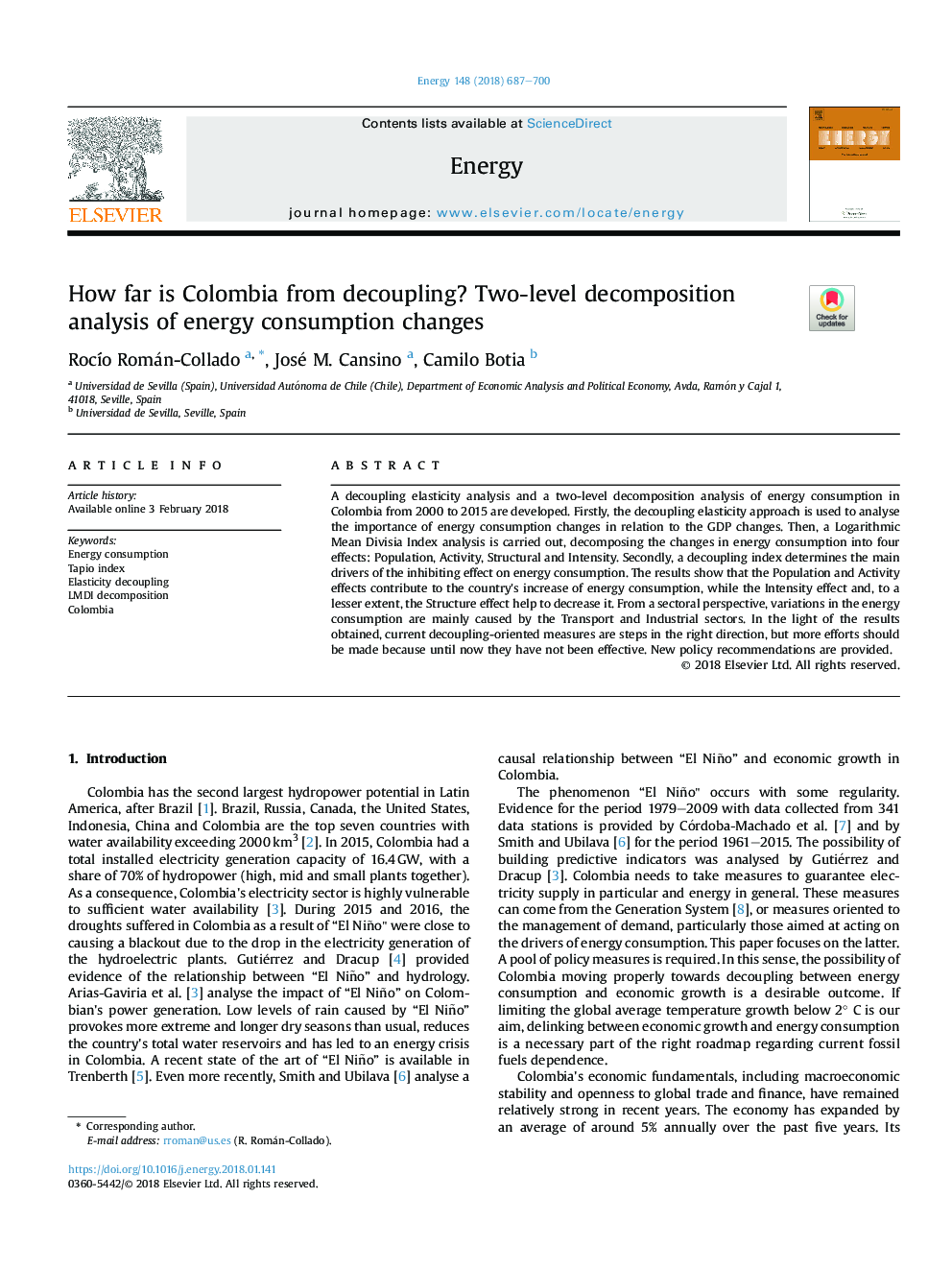| Article ID | Journal | Published Year | Pages | File Type |
|---|---|---|---|---|
| 8072042 | Energy | 2018 | 14 Pages |
Abstract
A decoupling elasticity analysis and a two-level decomposition analysis of energy consumption in Colombia from 2000 to 2015 are developed. Firstly, the decoupling elasticity approach is used to analyse the importance of energy consumption changes in relation to the GDP changes. Then, a Logarithmic Mean Divisia Index analysis is carried out, decomposing the changes in energy consumption into four effects: Population, Activity, Structural and Intensity. Secondly, a decoupling index determines the main drivers of the inhibiting effect on energy consumption. The results show that the Population and Activity effects contribute to the country's increase of energy consumption, while the Intensity effect and, to a lesser extent, the Structure effect help to decrease it. From a sectoral perspective, variations in the energy consumption are mainly caused by the Transport and Industrial sectors. In the light of the results obtained, current decoupling-oriented measures are steps in the right direction, but more efforts should be made because until now they have not been effective. New policy recommendations are provided.
Related Topics
Physical Sciences and Engineering
Energy
Energy (General)
Authors
RocÃo Román-Collado, José M. Cansino, Camilo Botia,
